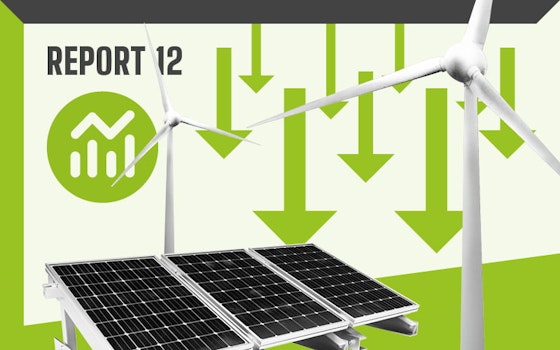
The Cold Hard Facts About Heat Pumps
Heat pumps can cut carbon, but costs and performance vary. Our report examines real-world data, bills, and what must change to make heat work for everyone.
Report releasedJanuary 26, 2026
View ReportSee the full report on the Green Britain Foundation website
Zonal pricing is another so-called “fix” for Britain’s broken energy market, cooked up by people who don’t seem to understand how energy—or fairness—actually works. The government is considering zonal pricing, an idea being pushed by Ofgem but widely opposed by industry, businesses, trade unions, and anyone who actually understands the system.
They claim it’ll lower energy prices. In reality? It just shifts the costs around, creating an energy postcode lottery where some people pay less and others—mostly those in cities—pay more. If the goal is genuinely cheaper energy, there are simpler, fairer, and faster solutions than this mess.
The government says zonal pricing will drive down energy costs. What they don’t say is that it just redistributes the burden—rural areas might get cheaper energy, but urban and less affluent areas will see bills rise.
70% of people support national pricing, and 85% think zonal pricing is unfair—especially older people, many of whom already face fuel poverty. The reality? This system would hurt working-class communities and could force the government into costly energy subsidies just to clean up the mess.
One of the main arguments for zonal pricing is that energy-intensive businesses will relocate to areas with cheaper energy. But let’s be real—steel plants, factories, and data centres can’t just pack up and move overnight.
UK Steel warns that zonal pricing would raise electricity costs and increase the risk of deindustrialisation
Renewable developers say price signals won’t change where they build—grid connections, planning, and wind resources matter more
Even tech companies need to be near cities for fast data transfer—zonal pricing won’t change that
So much for the idea that businesses will just “follow the cheap energy”…
You’d think businesses would be excited about a policy designed to help them. Instead, they hate it. UK Steel, Make UK, RenewableUK, Scottish Renewables, SSE, Scottish Power, and major investors have all criticised zonal pricing. Why?
Investor confidence will take a hit, making it harder to fund new renewable projects
The system will become more volatile, leading to higher costs in the long run
The upcoming Contracts for Difference (CfD) auction—critical for building our renewables—could suffer, pushing up prices rather than lowering them
This isn’t just bad policy—it’s actively harmful to the UK’s clean energy future.
The argument for zonal pricing assumes we can’t get clean energy where it’s needed. But that ignores ongoing grid upgrades that will deliver power nationwide.
Network investments will reduce transmission bottlenecks, making zonal pricing irrelevant. The financial benefits of zonal pricing vanish when you account for planned upgrades. Instead of messing with pricing zones, we should focus on speeding up grid improvements to ensure a national clean energy supply.
Zonal pricing hands more power to big generators, making it easier for them to manipulate prices.
Larger firms with regional dominance will exploit the market, driving smaller competitors out
Companies operating across multiple zones will face higher costs, limiting competition
Less competition = higher prices for consumers, not lower ones
Zonal pricing doesn’t just fail—it actively makes things worse.
Even Ofgem admits zonal pricing would be one of the most complex reforms we could attempt. It wouldn’t be fully implemented until well after 2030, meaning years of uncertainty for investors and market participants.
If a policy is risky, slow, and unpopular, why push it forward?
If we really want cheaper, greener energy, there’s a much simpler fix—break the link between gas prices and electricity prices.
Move from a pay-as-clear system to pay-as-bid, so renewables set their own price instead of being tied to gas
This would cut energy bills immediately and make the most of Britain’s cheap renewable power
Zonal pricing is a distraction—complicated, unfair, and unnecessary. The real solution is fixing the grid, making investment easier, and ensuring renewables lower bills for everyone.
We don’t need a postcode lottery. We need a national energy system that works for all of us—not just for corporate energy giants.
Heat pumps can cut carbon, but costs and performance vary. Our report examines real-world data, bills, and what must change to make heat work for everyone.
Report releasedJanuary 26, 2026
View ReportHow lower electricity prices could boost growth, cut inflation and leave every Brit better off
Report releasedDecember 11, 2025
View ReportA practical plan to bring prices down, tackle inequality and stabilise our economy
Report releasedOctober 27, 2025
View ReportA new plan to end Britain’s dependence on gas prices and bring down electricity costs
Report releasedOctober 27, 2025
View Report

